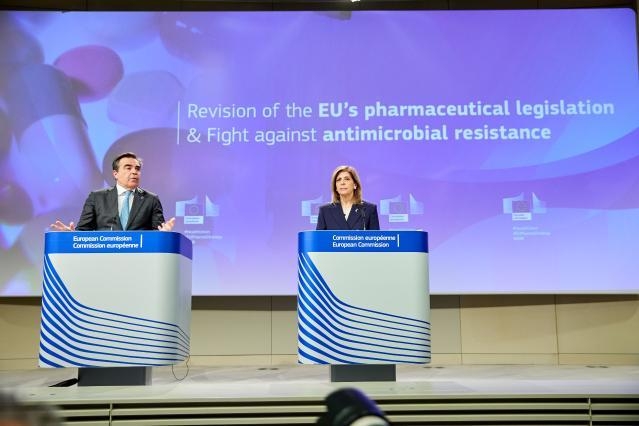About us
The MEDICINE EVALUATION COMMITTEE (MEDEV) was established in 1998 by representatives of the social health insurance organisations in Austria, Finland, Germany, Luxembourg, The Netherlands, and Switzerland to facilitate informed discussions and exchanges on pharmaceutical policy developments in the EU.
The European Social Insurance Platform (ESIP) in Brussels was commissioned with the role of coordinating the activities of the Committee.
MEDEV is a network of 25 national authorities from 20 Member States and Norway bringing together all the relevant institutions (national HTA agencies and social health insurers-payers) responsible for the assessment, pricing and reimbursement of medicines in Europe. MEDEV forum includes all those involved in the decision-making processes turning access to medicines into a reality for patients across Europe.
The overarching mission of MEDEV is to further the sustainable provision of medicines to patients who are publicly insured.
Cooperation & Exchange
MEDEV provides an informal platform for exchanges between national bodies responsible for the assessment, pricing and reimbursement of medicines to support them in their role at national level. This includes:
- Rapid assessments of (new) medicinal products of common interest
- Exchanges on ongoing and planned assessments for reimbursement, methodologies and pharmaceutical policy
- Review of EU-level activities impacting on national assessment, pricing and reimbursement
- Timely analyses of drug related trends and innovations, and political and legal initiatives of the European Institutions
Expertise
MEDEV provides an informal platform for consultation at EU level, offering specific expertise in the following areas:
- Pricing & reimbursement Pharmaceutical
- Policy advice & analysis
- Access to Medicines e.g. MoCA (Mechanism of Coordinated Access to Orphan Medicinal Products) .
Collaboration
MEDEV collaborates closely with the following organisations and networks:
- European Social Insurance Platform (ESIP)
- European Network on Health Technology Assessment (EUnetHTA)
- European Medicines Agency (EMA)
- European Commission (EC)
- European Parliament (EP)
- World Health Organisation (WHO) Regional Office for Europe
- Piperska Group
ESIP & MEDEV position on the revision of the EU pharmaceutical legislation

Today the European Social Insurance Platform (ESIP) and the Medicine Evaluation Committee (MEDEV) publish a comprehensive set of recommendations on the proposals to reform of the EU general pharmaceutical legislation, presented by the European Commission in April 2023.
The conundrum of high pharmaceutical prices often coupled with incomplete evidence at time of marketing authorisation affect national pricing and reimbursement decisions and consequently access to affordable treatment.
In order to preserve the sustainability of European healthcare systems, experts from public bodies responsible for health technology assessment (HTA), pricing and reimbursement (P&R) and public health insurers present a joint set of proposals to improve the EU pharmaceutical legislation, towards producing solid evidence for informed decision-making across the product lifecycle and promoting competition for affordable access to treatment.
Our proposals in a nutshell:
- Strengthen evidentiary requirements across the product lifecycle: strengthen requirements to conduct randomised controlled trials (RCTs) with active comparators, define timelines for post-launch evidence generation and penalties for non-compliance, limit accelerated and adapted pathways as inherently linked to uncertainties.
- Finetune the approach to reduce regulatory data protection (RDP): limit the cumulative duration of RDP to eight years, support additional protection for products addressing unmet medical needs (UMN) and launched in all Member States (provided that supply continuity is ensured), reject additional protection for RCTs (since these should be the gold standard).
- Better define unmet medical and societal needs: finetune the definitions of UMN, high unmet medical needs (HUMN) and criteria for orphan designation, consult HTA and P&R bodies to define guidelines on UMN, reject transferrable exclusivity vouchers for the development of new antimicrobials and consider alternative push and pull incentives.
- Ensure that the legal framework for orphan medicinal products (OMPs) prevents evergreening and focuses on ultra-rare diseases: target incentives on truly and ultra-rare diseases, reducing the prevalence threshold and reintroducing regular re-evaluations of market exclusivity also based on return on investment.
- Promote competition for affordable access: finetune and expand the exemption to the protection of intellectual property rights (‘Bolar’ exemption) to ensure day-one competition, support transparency of public funding for research and development purposes.
- Promote an environmentally sustainable pharmaceutical ecosystem: support stricter provisions on environmental risk assessment of medicinal products complemented with requirements for responsible disposal.
Find more in our ESIP & MEDEV position paper on the revision of the EU pharmaceutical legislation.
Main page picture - Source: EC - Audiovisual Service, European Union, 2023


